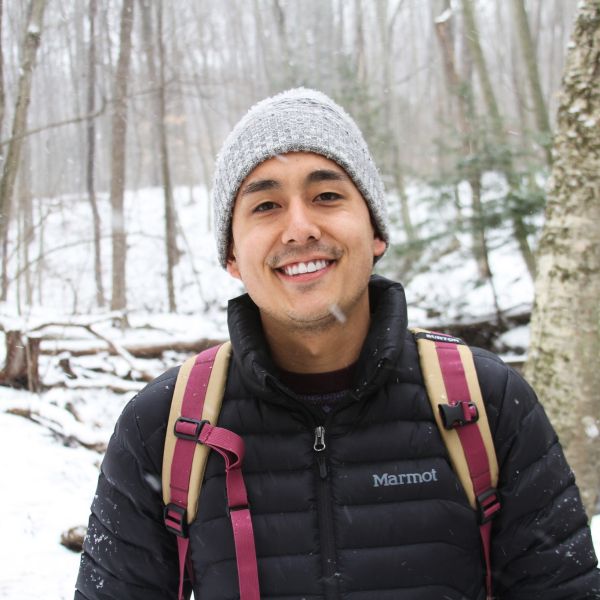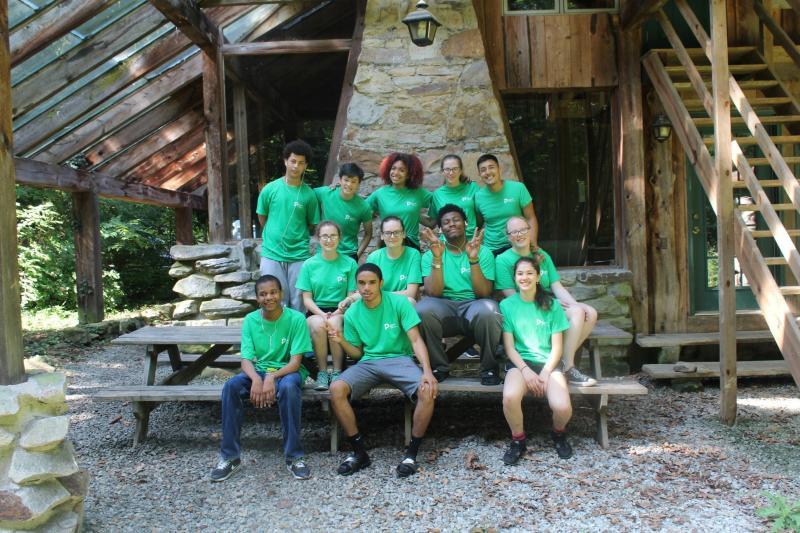Image

-
Taiji Nelson
Climate and Rural Systems Partnership Senior Program Manager, Learning Resources, Carnegie Museum of Natural History
- 30 Under 30
- 2018
- Changemaker Grantee
Pittsburgh, PA, United States
Age: 30
2023 EE 30 Under 30 Changemaker Grant Project
Future-Visioning and Arts-Based Learning at the Intersections of the Food Justice and Climate Justice Movement(s)
This project will use Hadestown—a Broadway musical that explores themes of hunger, survival, climate change, collective action, solidarity, and karma—as a catalyst for discussing environmental and social issues. Program participants will:
- Recognize and articulate how their own values, interests, identities, and actions relate to the broader food justice and climate justice movements.
- Recognize and articulate areas of sameness, difference, and solidarity with the values, interests, identities, and actions of people in other roles within the food justice and climate justice movements.
- Recognize and articulate opportunities to put their ideas and values into action in their everyday lives to promote solidarity within and between the food justice and climate justice movements.
EE 30 Under 30 Biography
Tell us a bit about yourself!
As a Naturalist Educator, I am passionate about getting young people outside to explore and connect with nature in cities, and my education philosophy prioritizes first-hand experiences in nature and strong peer/mentor relationships. I work primarily with middle and high school students, studying urban ecosystems and undertaking hands-on restoration projects to improve the health of parks. Through my work, I hope to share my enthusiasm about nature and science, to connect in-school and out-of-school learning, and to provide support to help kids follow their interests.
Originally from rural Pennsylvania, I moved to Pittsburgh in 2006 to study at the University of Pittsburgh (B.A. in Environmental Studies) and started working at the Pittsburgh Parks Conservancy in 2011 coordinating education and volunteer programs. I love learning and being active outdoors, and spend most of my free time hiking, biking, camping, running, and playing tennis or volleyball.

What inspired you to become a champion for the environment and environmental education?
Throughout childhood, my role models and mentors encouraged me to explore nature on family vacations, scout troop outings, school field trips, and while spending time outdoors with friends. Growing up among people who shared my interests in environmental science and outdoor recreation helped to cement those as core parts of my identity.
For students growing up in Pittsburgh, it can be challenging to find a sense of community around nature. Many of my students have reported feeling isolated because opportunities to experience nature may not be immediately apparent or accessible, or because their family and friends don’t share these interests. My own experiences also highlight the importance of community when learning, and have motivated me to design programs that engage students, parents, teachers and mentors to find ways to form meaningful relationships with other nature-minded people. My passion lies in building community among people of diverse backgrounds and perspectives who share an interest in the outdoors.
What advice would you give to the next generation of leaders that are looking to bring about positive change in their communities through EE?
The most powerful tool environmental educators have is their own connection with nature and their drive to explore and ask questions. For me, the most meaningful and memorable EE experiences happen when I design programs that engage my own passion for teaching, learning and being outdoors. Educators should be actively engaged in the programs we deliver, with the goal of modeling genuine enthusiasm for learning. I have found that if I’m having a good time, the participants will have a good time. If I leave myself open to learning from the participants, the participants will be open to learning something from me. If I’m truly interested in what we’re doing, the participants will (hopefully) be interested. When a program starts to feel stale or boring, I know that it’s time to revamp or reinvent before I lose the spark that drives me to love sharing nature with others.
Who do you look up to as inspiration for your work?
I was lucky to grow up in a multicultural family that brought together a wide range of voices around the dining room table. Upon describing my family, a friend once told me that it was like I was born into the UN because we represent so many different races, cultures, backgrounds and identities. This unique setting let me feel normal and valued, even while growing up gay and mixed-race in rural Pennsylvania.
In my work now, this perspective allows me to feel comfortable (or be okay feeling uncomfortable) and find common ground in the face of complicated systems and problems. I draw inspiration from each of their viewpoints and work to recreate this feeling by facilitating learning communities with truly diverse representation. Diversity and equity provide strength and resilience to groups of people.
I’ve also benefitted from a wide range of personal and professional mentors that pushed me to love what I do, and to keep an open mind that’s always ready to learn. Barack Obama (who grew up in a multicultural family) is an inspirational figure to me for his ability to distill wisdom and insight from complicated issues, while maintaining kindness, compassion and hope.
If you had to live in one place for the rest of your life, where would it be?
If I had to live in one place for the rest of my life, it would be in a city with close access to a national park. I’m a ride-or-die urbanite and love the nature that can be found in cities, but the feeling of adventure and wonder that I get when I visit a national park or national monument is unparalleled. Some of my favorite hikes and camping trips have been in Olympic National Park, Grand Tetons National Park, and Bears Ears National Monument. Protecting public lands is incredibly important to me because I know first-hand that they can provide powerful and life-defining outdoor experiences. They highlight an amazing cultural and ecological legacy that all Americans share and belong to all of us.